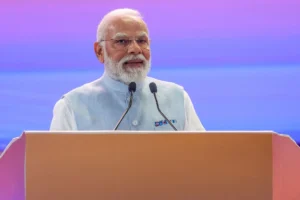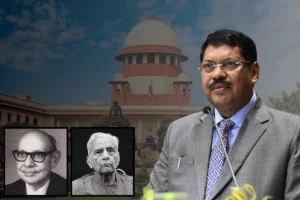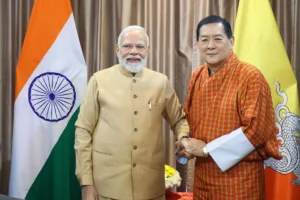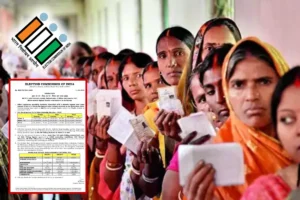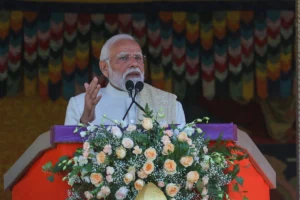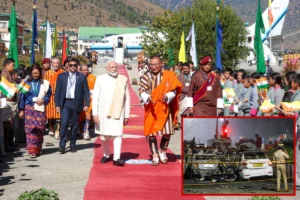
As Prime Minister Narendra Modi of India stands alongside global leaders at the G7 Summit in Italy, a striking narrative emerges about how major democracies have navigated electoral politics during and after the COVID-19 pandemic. India presents a unique case, being the lone major democracy where the incumbent leader and coalition were re-elected with a clear mandate amidst the pandemic.
As Prime Minister @narendramodi shares the stage with world leaders at the G7 Summit in Italy a comparative perspective on how India stands as the lone exception across Major Democracies in delivering a clear mandate to the incumbent Leader/Coalition since COVID-19.
Top…— Shashi Shekhar Vempati शशि शेखर (@shashidigital) June 14, 2024
Here’s a comparative perspective on how other major democracies have fared during this period.
India
Outcome: Incumbent government coalition led by PM Narendra Modi re-elected with a clear mandate.
Analysis: Despite the challenges posed by the COVID-19 pandemic, the Bharatiya Janata Party (BJP)-led coalition managed to secure a strong mandate, underscoring Modi’s continued popularity and the electorate’s trust in his leadership.
United States
Outcome: Incumbent President Donald Trump was voted out during the 2020 elections.
Current Scenario: The current incumbent, President Joe Biden, is trailing in opinion polls.
Analysis: The pandemic significantly impacted Trump’s re-election bid, with the electorate opting for change amidst a turbulent period.
Indonesia
Outcome: The incumbent coalition, PDI-P, lost the Presidential elections in 2024 to the Gerindra candidate by a wide margin.
Analysis: Economic and social challenges during the pandemic likely influenced voters to seek new leadership.
Brazil
Outcome: Incumbent President Jair Bolsonaro was voted out in 2022 after a run-off election.
Analysis: Bolsonaro’s handling of the pandemic was a significant factor in his defeat, with voters opting for new leadership in Luiz Inácio Lula da Silva.
Japan
Outcome: The incumbent Liberal Democratic Party (LDP) retained power in 2021 after changing Prime Ministerial candidates twice.
Analysis: The LDP’s strategic leadership changes helped maintain stability and public confidence during uncertain times.
Philippines
Outcome: Incumbent Vice President Leni Robredo lost the Presidential elections in 2022 to Ferdinand Marcos Jr.
Analysis: The pandemic period saw a shift towards a candidate promising continuity and change, reflecting the electorate’s desire for stability.
Germany
Outcome: The ruling coalition of former Chancellor Angela Merkel recorded the worst-ever losses in 2021, leading to a new Chancellor from the Social Democratic Party (SPD).
Analysis: The end of Merkel’s long tenure and pandemic-related challenges led to significant electoral shifts.
Thailand
Outcome: In the 2023 general elections, the incumbent Prime Minister’s party lost vote shares and seats to multiple opposition parties.
Analysis: Political dynamics during the pandemic period influenced voters to support a broader range of opposition parties.
United Kingdom
Outcome: The incumbent government is trailing badly in opinion polls ahead of the general elections, having changed Prime Ministers twice with three different leaders.
Analysis: The pandemic’s impact and leadership changes have created political instability, affecting public confidence.
France
Outcome: Incumbent President Emmanuel Macron was re-elected in 2022 after a run-off.
Analysis: Macron’s victory highlighted a polarized electorate, with no candidate securing a majority initially.
South Africa
Outcome: The incumbent African National Congress (ANC) lost its majority in 2024 for the first time in 30 years.
Analysis: Long-standing political dominance was challenged amidst pandemic-induced economic and social issues.
Italy
Outcome: The incumbent government was voted out in 2022, with the opposition coalition winning the majority.
Analysis: Pandemic-related governance issues contributed to the electorate’s desire for change.
Colombia
Outcome: The incumbent party lost the 2022 Presidential elections, with a left-wing opposition candidate winning for the first time after a run-off.
Analysis: Social unrest and economic difficulties during the pandemic influenced the shift in voter sentiment.
South Korea
Outcome: The incumbent party’s Presidential candidate lost in 2022 to the opposition candidate.
Analysis: Pandemic management and economic concerns were key issues influencing the electoral outcome.
Spain
Outcome: No party gained a majority in the 2023 general elections, with the incumbent party finishing second behind the opposition in both seats and vote share.
Analysis: Fragmented political landscape and pandemic aftermath contributed to the inconclusive results.
The electoral outcomes during the COVID-19 pandemic have been varied across major democracies, with many incumbent governments facing significant challenges. India stands as a notable exception where the incumbent government secured a clear mandate, highlighting unique factors that have influenced voter trust and confidence amidst global political shifts.
To read more such news, download Bharat Express news apps









